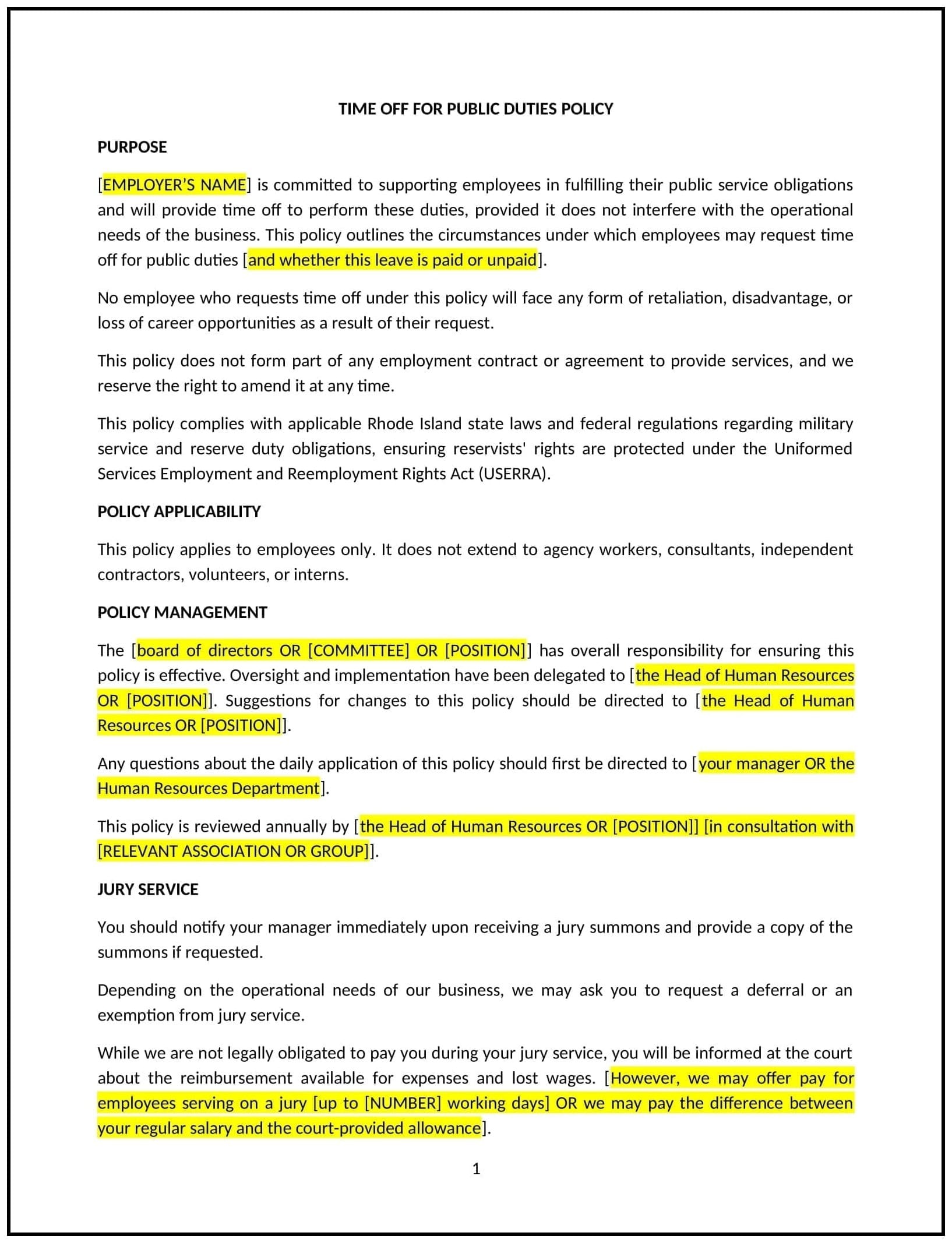Time off for public duties policy (Rhode Island): Free template
Got contracts to review? While you're here for policies, let Cobrief make contract review effortless—start your free review now.

Customize this template for free
Time off for public duties policy (Rhode Island)
This time off for public duties policy is designed to help Rhode Island businesses establish guidelines for employees taking leave to fulfill civic responsibilities, such as jury duty or military service. It outlines procedures for requesting leave, pay during leave, and job protection.
By adopting this policy, businesses can support employees’ civic engagement, maintain compliance with Rhode Island laws, and foster goodwill within the community.
How to use this time off for public duties policy (Rhode Island)
- Define public duties: Clarify what qualifies as public duties, such as jury duty, military service, or election-related activities.
- Set request procedures: Outline steps for employees to request time off, including notice requirements and documentation.
- Address pay during leave: Specify whether employees will be paid during their absence for public duties.
- Ensure job protection: Guarantee that employees will return to the same or an equivalent position after their leave.
- Train managers: Educate supervisors on handling leave requests and maintaining workflow during employee absences.
- Review and update: Assess the policy annually to ensure it aligns with evolving business needs and legal requirements.
Benefits of using this time off for public duties policy (Rhode Island)
This policy offers several advantages for Rhode Island businesses:
- Supports civic engagement: Encourages employees to participate in public duties, fostering a sense of community responsibility.
- Maintains compliance: Aligns with Rhode Island laws regarding leave for jury duty, military service, and other civic obligations.
- Enhances reputation: Demonstrates the business’s commitment to supporting employees’ civic responsibilities.
- Builds trust: Shows employees that the business values their contributions to society.
- Reduces turnover: Employees are more likely to stay with a business that supports their civic engagement.
Tips for using this time off for public duties policy (Rhode Island)
- Communicate the policy: Share the policy with employees and include it in the employee handbook.
- Provide training: Educate managers on handling leave requests and maintaining workflow during employee absences.
- Monitor compliance: Regularly review leave requests to ensure adherence to the policy.
- Address issues promptly: Take corrective action if leave requests are mishandled or denied improperly.
- Update regularly: Assess the policy annually to ensure it aligns with evolving business needs and legal requirements.